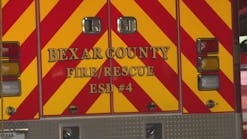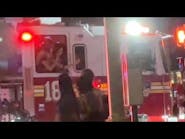Pittsburgh May Change Off-Duty Fee System
Source The Pittsburgh Tribune-Review
March 20--Pittsburgh's public safety departments should standardize fee collection from outside businesses that hire police, paramedics and firefighters to provide security and other services, city officials said Tuesday.
Doing so could help the city avoid missteps that led to a federal investigation of how the police department's special events office has handled tens of thousands of dollars in administrative fees that businesses pay to hire off-duty police officers.
"The system that we have has failed," said Councilman Bill Peduto. "It's not only ripe for corruption, but it's also a burden to anybody that tries to pay for anything from an off-duty officer to a parking permit. The entire system needs to be overhauled."
A group of council members, police labor union officials and representatives of Mayor Luke Ravenstahl's office are examining how fees are collected by the police and other public safety departments to create a more transparent, accountable system, said Public Safety Director Michael Huss.
In 2012, Pittsburgh's Emergency Medical Services department collected $891,000 in hourly wages and a 10 percent administrative fee from businesses and event organizers that hired paramedics for off-duty work, according to acting EMS Chief Mark Bocian's office.
The money went into a trust fund, much of which the paramedics received for their pay.
Huss' office could not specify how much came from the fee and how much from wages.
City Controller Michael Lamb said that flaw makes it nearly impossible to determine whether the administrative fee is being spent appropriately.
The FBI is investigating allegations that some of the $3.85-an-hour fee paid to the police department's office of special events was diverted to a secret account at the Greater Pittsburgh Police Federal Credit Union.
"We have to be able to distinguish between money that belongs to the city and money that doesn't," Lamb said.
Huss said he's confident the paramedics fee has been spent appropriately on EMS supplies and equipment, such as EMS motorcycles and other small vehicles that can navigate crowded venues.
Unlike the police system -- which entails some businesses paying police officers who serve as schedulers and others paying the city directly -- arrangements for paramedics are made through a single contact, Chief Ron Romano, Huss said.
EMS collects the second-most money behind police, and Huss said he was "very comfortable" with the way its system is run, along with that of the fire department and Bureau of Building Inspection.
"Can we make it better and more transparent? I think we can. We need to be consistent with all of them, so we're going to change them," he said.
Paramedics work at an average of 56 events a month, according to the city's 2013 budget.
They set up medical tents, provide ambulances on standby and offer first aid at sporting and concert venues, conventions and outdoor festivals, according to the department's special events website.
The fire department doesn't charge a consistent administrative fee, Huss said. Permit and other expenses associated with using off-duty firefighters and fire trucks at events, such as fireworks displays, totaled $42,314 in 2012.
That money goes into the city's general fund.
Fees paid to the Bureau of Building Inspection for inspecting ticket, food and merchandise vending licenses brought in $20,062 in 2012.
The fees and wages for EMS, fire and BBI totaled $953,370 last year, far less than the estimated $6.7 million that flows annually from bars, restaurants, construction firms and other private businesses to off-duty police officers, who receive about $40 an hour, and to the department, which collects the $3.85-per-hour fee.
"Public safety should follow the same rules that parks and recreation follows, or building inspection follows or every other department follows," Peduto said. "It should be modernized to make it easy and accountable for people."
Jeremy Boren is a staff writer for Trib Total Media. He can be reached at 412-320-7935 or [email protected].
Copyright 2013 - The Pittsburgh Tribune-Review





